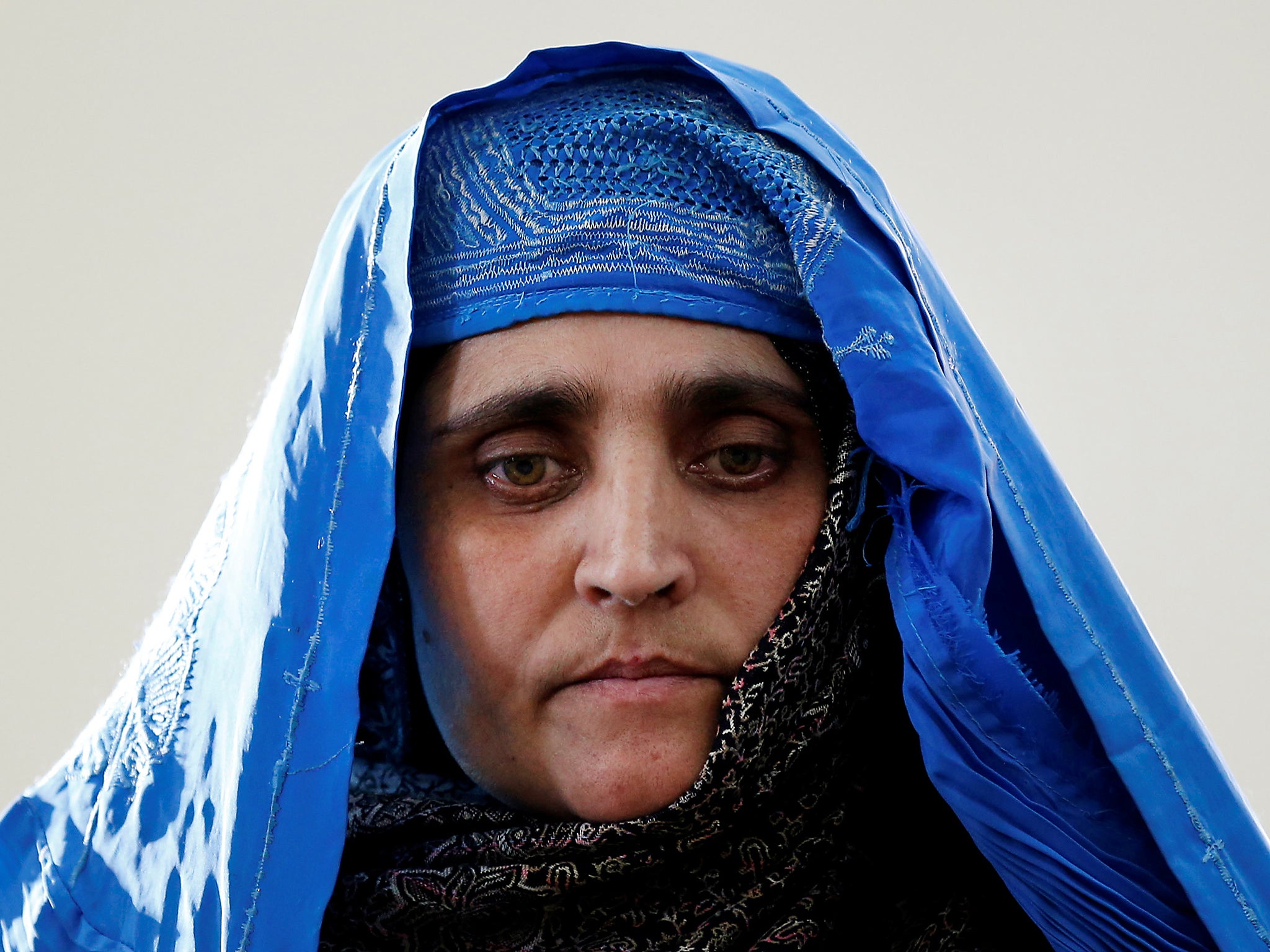Famous National Geographic cover star deported from Pakistan over fraudulent identity papers
‘Afghanistan is only my birthplace, but Pakistan was my homeland... I am dejected. I have no other option but to leave’

Your support helps us to tell the story
From reproductive rights to climate change to Big Tech, The Independent is on the ground when the story is developing. Whether it's investigating the financials of Elon Musk's pro-Trump PAC or producing our latest documentary, 'The A Word', which shines a light on the American women fighting for reproductive rights, we know how important it is to parse out the facts from the messaging.
At such a critical moment in US history, we need reporters on the ground. Your donation allows us to keep sending journalists to speak to both sides of the story.
The Independent is trusted by Americans across the entire political spectrum. And unlike many other quality news outlets, we choose not to lock Americans out of our reporting and analysis with paywalls. We believe quality journalism should be available to everyone, paid for by those who can afford it.
Your support makes all the difference.An Afghan woman immortalised on the cover of National Geographic was deported by Pakistani officials on Wednesday to her war-torn homeland following a brief period of detention for using fraudulent identity papers.
Sharbat Gula, whose intense green eyes were captured in an image taken in a Pakistan refugee camp in 1984 by journalist Steve McCurry, was discharged from hospital where she was being treated for Hepatitis C and taken to the border overnight, officials said.
“We have deported Sharbat Gula to Afghanistan. She crossed the border to Afghanistan at around 2:30am. She was also accompanied by her four children,” Asmatullah Wazir, an administration official in the border town of Torkham told AFP.

A second official, requesting anonymity, confirmed the move and said Ms Gula, 45, was accompanied by officials from the Afghan embassy.
Speaking to AFP last week, Ms Gula said she was “heartbroken” at the prospect of returning.
“Afghanistan is only my birthplace, but Pakistan was my homeland and I always considered it as my own country,” she said.
“I had decided to live and die in Pakistan but they did the worst thing with me. It’s not my fault that I born there [in Afghanistan]. I am dejected. I have no other option but to leave.”
Ms Gula said she first arrived in Pakistan an orphan, some four or five years after the Soviet invasion of 1979, one of millions of Afghans who have sought refuge over the border since.
Since July hundreds of thousands have returned to Afghanistan in a desperate exodus, ahead of a March 2017 deadline for all Afghan refugees to leave Pakistan.
Last month the United Nations High Commissioner for Refugees said more than 350,000 Afghan refugees – documented and undocumented – had returned from Pakistan so far in 2016, adding it expected a further 446,000 to do so by the year’s end.
AFP
Join our commenting forum
Join thought-provoking conversations, follow other Independent readers and see their replies
Comments